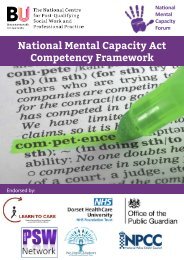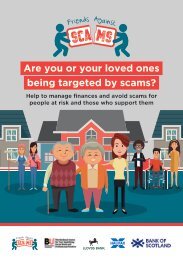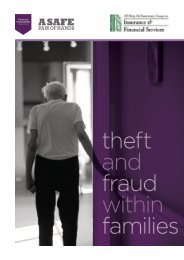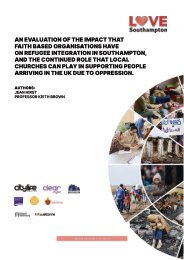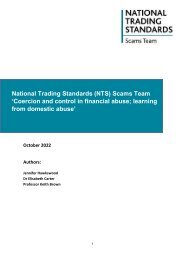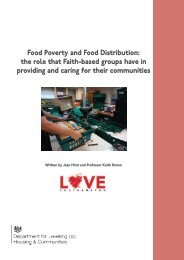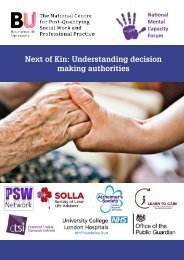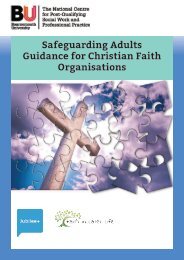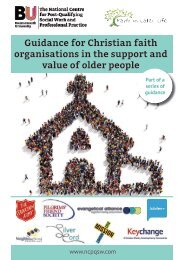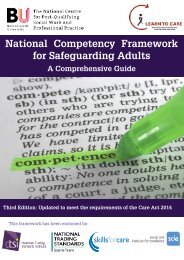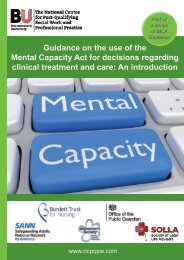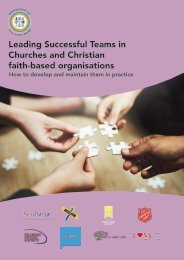Loneliness in Older People - Online
Some of the isolation and loneliness which people in the Fourth Age experience is due to the ageism in our society and in our churches. It is now time for churches to stand-up to the prejudices and discrimination of older people, to challenge the ageism we see in society and show that people in the Fourth Age are valued, celebrated, respected and included. Churches and Christian faith organisations should be leading the way to reach out to older people, to tackle ageist views and attitudes and demonstrate that older people matter.
Some of the isolation and loneliness which people in the Fourth Age experience is due to the ageism in our society and in our churches. It is now time for churches to stand-up to the
prejudices and discrimination of older people, to challenge the ageism we see in society and show that people in the Fourth Age are valued, celebrated, respected and included. Churches
and Christian faith organisations should be leading the way to reach out to older people, to tackle ageist views and attitudes and demonstrate that older people matter.
You also want an ePaper? Increase the reach of your titles
YUMPU automatically turns print PDFs into web optimized ePapers that Google loves.
Respond<strong>in</strong>g to the Epidemic of <strong>Lonel<strong>in</strong>ess</strong><br />
For many centuries now, the church <strong>in</strong> the UK has been at the forefront of address<strong>in</strong>g lonel<strong>in</strong>ess<br />
and social isolation whether through runn<strong>in</strong>g lunch clubs, toddler groups, social events or<br />
one-to-one pastoral care of those <strong>in</strong> the community. These activities have formed part of the<br />
backbone of community life, without which many people would have slipped <strong>in</strong>to significant<br />
emotional, psychological and spiritual ill health. It is a welcome step that <strong>in</strong> the past 10 years<br />
<strong>in</strong> particular, lonel<strong>in</strong>ess and social isolation have <strong>in</strong>creas<strong>in</strong>gly become recognised by the church<br />
as serious social concerns. These were quickly brought <strong>in</strong>to sharper focus, dur<strong>in</strong>g 2020, when<br />
Covid-19 forced many people across the world to face their own realities of deal<strong>in</strong>g with vary<strong>in</strong>g<br />
levels and extremes of isolation and lonel<strong>in</strong>ess.<br />
There have been a number of key developments <strong>in</strong> recent years which have led to the general<br />
public, government and other agencies recognis<strong>in</strong>g these concerns. In 2011, the Campaign to<br />
End <strong>Lonel<strong>in</strong>ess</strong> was established, aga<strong>in</strong>st the background that 9 million people <strong>in</strong> the UK lacked<br />
the friendship and support that they needed. The campaign’s role is to share research, evidence<br />
and knowledge relat<strong>in</strong>g to lonel<strong>in</strong>ess and social isolation and its <strong>in</strong>itial work has become a<br />
catalyst to many subsequent developments <strong>in</strong> the field.<br />
Follow<strong>in</strong>g the tragic death of Jo Cox MP <strong>in</strong> June 2016, a commission was established (the Jo<br />
Cox Commission) which focused on address<strong>in</strong>g lonel<strong>in</strong>ess with<strong>in</strong> communities. In 2017, the<br />
Department for Digital, Culture, Media and Sports launched a £20 million fund to address<br />
lonel<strong>in</strong>ess and the world’s first ‘<strong>Lonel<strong>in</strong>ess</strong> M<strong>in</strong>ister’ – Tracey Crouch – was appo<strong>in</strong>ted.<br />
Publication of the <strong>Lonel<strong>in</strong>ess</strong> Strategy (2018) made a number of recommendations which have<br />
led to <strong>in</strong>creas<strong>in</strong>g cross-governmental work<strong>in</strong>g on the issue, raised awareness of the impact of<br />
lonel<strong>in</strong>ess and cont<strong>in</strong>ued <strong>in</strong>vestment on social prescrib<strong>in</strong>g, as a way to offer a variety of services<br />
and activities to support people fac<strong>in</strong>g lonel<strong>in</strong>ess.<br />
The key role of churches and faith groups<br />
Dur<strong>in</strong>g this time, churches and faith groups have cont<strong>in</strong>ued to do what they do best: respond<strong>in</strong>g<br />
to priority needs and concerns <strong>in</strong> their communities.<br />
A coalition of ten national Christian charities has been work<strong>in</strong>g together s<strong>in</strong>ce 2017 through<br />
Christians Together Aga<strong>in</strong>st <strong>Lonel<strong>in</strong>ess</strong> (CTAL). This coalition has collectively been engag<strong>in</strong>g <strong>in</strong><br />
the development of national strategies, <strong>in</strong>clud<strong>in</strong>g a multi-agency approach to consider effective<br />
responses to lonel<strong>in</strong>ess and <strong>in</strong>volvement of the ‘<strong>Lonel<strong>in</strong>ess</strong> M<strong>in</strong>ister’ to discuss the role of faith<br />
groups <strong>in</strong> address<strong>in</strong>g lonel<strong>in</strong>ess.<br />
As we come to terms with the impact that Covid-19 has had on us all, the church will cont<strong>in</strong>ue<br />
to have a crucial role to play <strong>in</strong> local communities. This will <strong>in</strong>clude ensur<strong>in</strong>g that those on the<br />
marg<strong>in</strong>s of society are identified, and opportunities provided to engage with <strong>in</strong>itiatives which<br />
lead to greater connectivity and <strong>in</strong>clusion.<br />
There are, however, many challenges as we all seek to make our communities as welcom<strong>in</strong>g<br />
as we can. On an <strong>in</strong>dividual level, as we engage with others <strong>in</strong> our day-to-day lives and at<br />
organisational level. There are many opportunities to br<strong>in</strong>g people together – both virtually<br />
and <strong>in</strong> person, and this <strong>in</strong>volves a commitment to long-term relationships, partner<strong>in</strong>g with<br />
other organisations and prioritis<strong>in</strong>g resources and time. There are now a number of excellent<br />
models of good practice that churches can use to address lonel<strong>in</strong>ess locally (see page 35) which<br />
encourage jo<strong>in</strong>t work<strong>in</strong>g and avoids duplication of effort.<br />
9 | <strong>Lonel<strong>in</strong>ess</strong> <strong>in</strong> <strong>Older</strong> <strong>People</strong>



